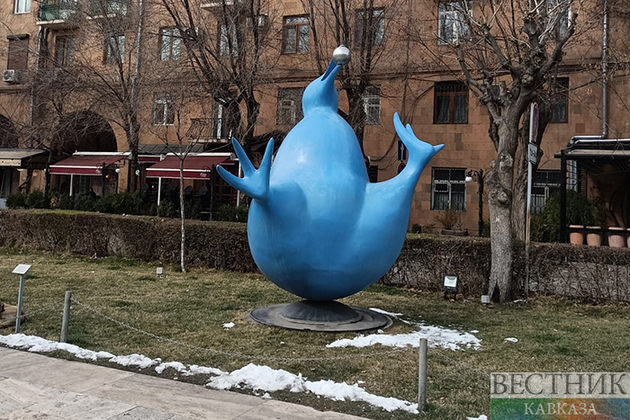The Armenian nationalist opposition continues to impose the ideas "the country is in constant danger", "the Armenian authorities are not able to negotiate", and "the future of the people depends entirely on how much they manage to weaken their closest neighbors" on people. The separatism ideologists themselves are not afraid of war, since their personal financial security allows them to immediately leave the republic in the event of a real threat.
Arguing with those who have never been interested in the region's development outside the militaristic paradigm is pointless. But many have questions for the opposition that even the most active street tribune, the Vice speaker of the Armenian parliament from the opposition, Ishkhan Saghatelyan, cannot answer.
The first question is why does the opposition believe that the current peace process cannot become a platform for future peace? The nationalists argue that the current negotiations, meetings between the leaders of Armenia and Azerbaijan are not in the interests of Armenia and should be suspended, deliberately ignoring the fact that Armenia was defeated on the battlefield and only thanks to Russia avoided a greater catastrophe. The nationalists are ready to echo the words of the hated Armenian Foreign Minister Ararat Mirzoyan, who stated in an interview with the Greek newspaper "Kathimerini" that Armenia is ready to resume comprehensive peace talks, which, however, have been going on for a long time. In practice, the Armenian statehood did not suffer as a result of the war, Armenia did not pay indemnities, it was not subject to UN sanctions, and the security of the Armenian community of the Karabakh region of Azerbaijan is ensured by the forces of its Russian peacekeepers. What else is needed for the revanchist forces of Armenia to be oriented to peace?
The second question is does the nationalists' position imply any concessions? It is important to pay attention to this because more than a quarter of a century ago, as a result of the occupation of the Azerbaijani Nagorno-Karabakh Autonomous Region's territory, seven adjacent regions were designated as a "security belt". At their expense, Yerevan tried to bargain with Baku. Not a single Armenian administration spoke in support for the proposed peacekeeping plans. Even the best-known Madrid Principles remained on the negotiating table because they did not legitimize the occupation. Indirectly, the answer to this question lies in the policy of demonizing Azerbaijan and presenting it as a threat to the Armenian presence in the South Caucasus.
The third question is why should the Armenian public support the forcible redistribution of post-Soviet borders within the South Caucasus? Referring to the allegedly unfair administrative division of the USSR is an extremely dangerous occupation, because it was the Soviet government that revived the Armenian statehood, made a major contribution to the future of all the peoples and republics of the region.
The fourth question is why the radicals' position changes depending on changes in the geopolitical space. Previously, the partners of the leaders of the Karabakh clan were the structures of European democracy and the USA, the attitude towards which cooled noticeably after the West recognized the need for peace. When visiting European capitals, the opposition factions' leaders manage only with behind-the-scenes meetings with the most radical members of the foreign diaspora. However, the Russian peacekeeping line does not stand out on the political agenda of the revanchists, despite the articulated respect for Russian peacekeepers. It seems that the Armenian nationalists are waiting for the most opportune moment, seeking to support the force that will win in the current global confrontation, in the hope of being rewarded with the opportunity to continue to use the rhetoric of hostility.






